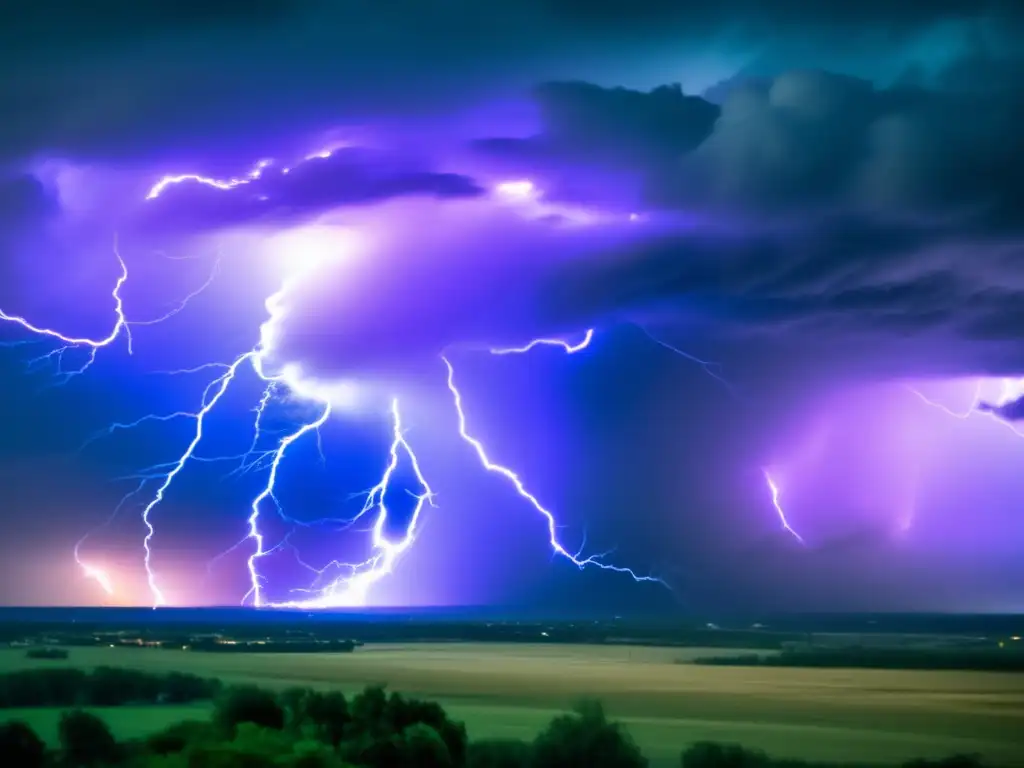Coping Mechanisms: Managing Stress During A Hurricane

Coping Mechanisms: Managing Stress During a Hurricane
Introduction
Hurricanes can be a terrifying force of nature that not only cause physical destruction but also emotional distress. The impact of a hurricane can affect all aspects of our lives, from losing our homes to being separated from loved ones. In the aftermath of a hurricane, it's common to experience feelings of anxiety, fear, sadness, and even depression. Coping with these emotions is critical to help mitigate long-term mental health effects.
Understanding the Impact of Hurricanes on Mental Health

The Importance of Addressing Mental Health Needs after a Hurricane
The aftermath of a hurricane can lead to significant emotional stress for those who have experienced it. Everyone copes differently, but it's essential to address the psychological impact and take steps towards healing and recovery. Ignoring this aspect of the disaster can lead to long-term mental health consequences.
The Common Emotional Reactions to a Hurricane
The reactions to a hurricane can vary among individuals. However, there are some typical emotional responses shared by many such as:
- Anxiety- The fear of another impending disaster or the worry that we aren't prepared enough for a future hurricane can cause anxiety. This anxiety can manifest itself in physical symptoms like restlessness, headaches, and difficulty sleeping.
- Depression- A hurricane can cause significant life disruptions and changes, leading to feelings of sadness, hopelessness, and loss of interest in daily activities.
- Trauma- Those who have gone through the most severe hurricane impacts, such as losing their homes and their loved ones, can experience lasting psychological trauma.
Managing Stress During a Hurricane
Preparing for a hurricane is essential, but it's also crucial to prepare for the emotional aspect of the disaster. Here are some coping mechanisms that can help you manage your stress:
Preparation is Key

Create a Safety Plan
Creating a safety plan is one of the most important ways to prepare for a hurricane. It's essential to have a plan that outlines evacuation routes, meeting places, and emergency contact numbers. Doing so will help reduce last-minute panic and anxiety when a hurricane approaches.
Stock up on Necessities
Make sure you have enough food, water, and medications to last at least several days. Additionally, stock up on essential items like flashlights, batteries, and blankets. Having these necessities on hand can help provide a sense of security and control while going through a hurricane.
Stay Informed
Keeping up to date with the latest weather reports and news updates can help you stay informed about the status of the hurricane. This information can help you make informed decisions about your safety and well-being.
Coping Strategies during a Hurricane

Stay Safe and Stay Calm
During a hurricane, it's vital to stay safe by following all safety protocols carefully. Stay calm and practice relaxation techniques such as deep breathing, meditation, or gentle yoga to help alleviate stress and anxiety.
Avoid isolation by maintaining social connections with friends and family members. Stay in touch via phone, text, or video calls. Talking to others who have gone through similar experiences can help you feel less alone and more supported.
The constant bombardment of news and social media can exacerbate feelings of anxiety and fear, leading to more stress. Limit your exposure to these sources and instead focus on meaningful activities that bring you joy and relaxation.
Recovery and Moving Forward

Seek Professional Help
Don't hesitate to reach out to a mental health professional if you're struggling to cope with hurricane-related stress and trauma. They can provide support, guidance, and strategies for dealing with the psychological effects of a hurricane.
Celebrate Small Victories
Taking small steps towards recovery, no matter how insignificant they may seem, can help build momentum and lead to a sense of accomplishment. Celebrate each victory, whether it's restoring power to your home or reconnecting with loved ones.
Gratitude and Resilience
Finally, practicing gratitude and focusing on the positives in life can help foster resilience in the face of adversity. Being grateful for what we have, even during challenging times, can help shift our mindset and perspective towards one of hope and determination.
Frequently Asked Questions

-
What are the emotional reactions to a hurricane?
The common emotional reactions to a hurricane include anxiety, depression, and trauma.
-
How do I manage stress during a hurricane?
You can manage stress during a hurricane by creating a safety plan, stocking up on necessities, staying informed, staying calm, maintaining social connections, and limiting exposure to news and social media.
-
What should I do to recover from the psychological effects of a hurricane?
Seeking professional help, celebrating small victories, and practicing gratitude and resilience can all help with hurricane-related psychological recovery.
-
How long do the psychological effects of a hurricane last?
The psychological effects of a hurricane can vary in their duration, but seeking support and practicing self-care strategies can help reduce the long-term effects.
-
What resources are available for those affected by a hurricane?
There are many resources available, including FEMA, the Red Cross, and organizations that specialize in mental health support like the American Psychological Association's Disaster Response Network.
Conclusion
Coping with the psychological effects of a hurricane is essential for recovery and moving forward. By following these coping mechanisms and seeking professional support when necessary, individuals can take control of their emotional well-being and build resilience in the face of adversity. Remember to stay safe, stay calm, and stay connected during a hurricane. Finally, always remain hopeful for a brighter tomorrow and learn from the challenges faced today.
Additional Resources

For additional resources on managing stress during a hurricane, visit the following websites:
 Staying Informed: Monitoring Weather Reports During A Hurricane
Staying Informed: Monitoring Weather Reports During A Hurricane Staying Put Or Moving Out: When To Evacuate During A Hurricane
Staying Put Or Moving Out: When To Evacuate During A Hurricane A Candle In The Wind: Fire Safety During A Hurricane
A Candle In The Wind: Fire Safety During A HurricaneIf you want to discover more articles similar to Coping Mechanisms: Managing Stress During A Hurricane, you can visit the During the hurricane: category.
Leave a Reply

Articulos relacionados: